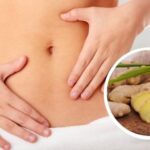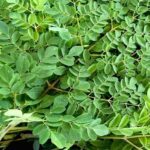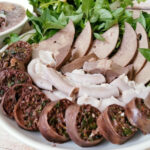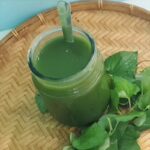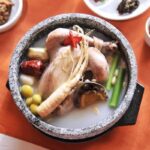Vietnamese Coriander, or Rau Răm, is a perennial herb that thrives in tropical and subtropical climates, particularly in hot and humid conditions. Its leaves and young stems are widely used and add a distinctive flavor to Vietnamese cuisine.
Botanically known as Persicaria odorata, Vietnamese Coriander also goes by other names such as Daun kesum or Daun lak in Malaysian, and Lặc sa diệp in Chinese.
The main chemical constituents of Vietnamese Coriander include long-chain aldehydes such as decanal (28%), dodecanal (44%), and decanol (11%) found in its essential oil. Sesquiterpenes, including α-humulene and β-caryophyllene, make up about 15% of the essential oil.

The Benefits and Drawbacks of Vietnamese Coriander
1. Benefits of Vietnamese Coriander
In traditional East Asian medicine, Vietnamese Coriander is believed to have a warm and spicy character. It is used to strengthen the spleen and stomach, aid digestion, and dispel dampness. It is commonly employed in cases of stomach coldness, indigestion, and rheumatism. It is often added to dishes with cooling properties or those that are difficult to digest.
Additionally, Vietnamese Coriander is nutrient-rich and offers various health benefits. The seeds, when decocted with Mexican marigold, are used to treat cholera (characterized by vomiting and frequent diarrhea). The roots, when decocted in alcohol, can alleviate heart pain. When crushed and applied topically, the fresh herb can treat skin infections such as ringworm, tinea versicolor, and scabies, as well as snakebites.
2. Drawbacks of Excessive Consumption
Despite its myriad benefits, excessive consumption of Vietnamese Coriander can have negative effects on health.
Impact on Libido
Regular and excessive consumption of Vietnamese Coriander can lead to an imbalance of heat and cold in the body, resulting in reduced libido and sexual function in both men and women. It is believed that the herb can deplete “jing,” which is the essence of life force and reproductive energy.
In men, this can manifest as decreased sexual desire and erectile dysfunction, while women may experience disruptions in their menstrual cycle.
Potential Risk During Pregnancy
Due to its spicy and warming nature, as well as its ability to stimulate qi and blood flow, Vietnamese Coriander is contraindicated during pregnancy. Its stimulating effect on the uterus may induce contractions and pose a risk to the pregnancy.
The Miracle of Ginger: 5 Surprising Benefits of Applying it to Your Navel
The belly button, or navel, is often an overlooked part of our body. In Traditional Chinese Medicine, however, the navel is considered a powerful gateway to our health. It is believed that the navel is connected to the Shen Que acupoint, which is linked to 12 meridians and 5 internal organs. So, what are the benefits of rubbing ginger on the navel?
The Ultimate Superfood: Discover the Veggie with 4 Times More Calcium Than Milk and 7 Times More Vitamin C Than Oranges
In Vietnam, there exists a vegetable that is a nutritional powerhouse. This humble vegetable contains four times more calcium than milk, seven times more vitamin C than oranges, four times the amount of iron found in spinach, and four times as much vitamin A as carrots. And the best part? It’s incredibly affordable.
3 Types of Drinks That Are Effective in Lowering Potassium Levels: Inexpensive, Easy-to-Make, and Right from Your Garden
Watercress juice, matcha green tea, and fresh turmeric juice are nature’s formidable trio in the fight against cancerous cells. With powerful antioxidants and health-boosting properties, these beverages are not only easy to make and affordable but also packed with nature’s goodness straight from your garden.
























